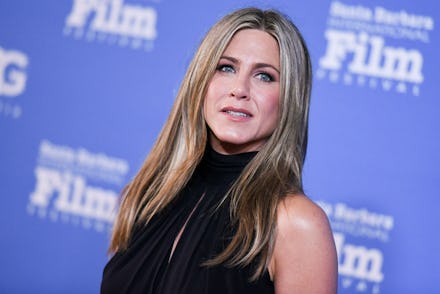What You're Really Asking a Woman When You Ask Why She Doesn't Have Kids

"It happened again at a baby shower recently," my 30-something friend, Alexandra*, told me over coffee a few weeks ago. "A complete stranger asked me if I had kids. I said no, and she immediately asked why not, same as usual. Oh, but this time, she asked if I was planning to freeze my eggs."
Welcome to the reality of being a childless woman of childbearing age: It comes with a lot of awkward questions.
To anyone who hasn't had the pleasure of being interrogated about the contents of her womb (or lack thereof), the question might seem like an invasion of privacy — and it most certainly is. But that doesn't stop people from asking young women when they plan to have kids, which is why we urge people to STFU about this all the time.
Yet at a certain point, the question changes from when a woman will have a baby to why doesn't she have one yet. We're not just asking childless women why they don't have kids. Instead, we're projecting our own ideals and insecurities onto them.
The (real) big question: When we ask a woman why she doesn't have kids, what we really want to know is: "What's wrong with you?" In a culture that glorifies motherhood (but provides little to no meaningful support for women who become parents), asking a woman why she doesn't have kids is almost always a loaded question. The implications are pretty transparent: It's not just a way of telling someone she should definitely become a mother at some point, but that she probably should have a screaming infant on her hip already.
But as Gloria Steinem once shared, "Everybody with a womb doesn't have to have a child any more than everybody with vocal chords has to be an opera singer." As millennial women realize that they're not so sure they want kids in the first place, more than anything, they want time to make up their minds on the subject. Members of our generation are staying single longer, using the time our parents and grandparents spent making babies to live on our own, date different people and figure out what the hell we want to do with our lives.
When we ask women why they don't have kids, we treat parenthood as if it's a life goal every woman is supposed to have. We're asking childless women to defend themselves against the negative stereotypes we have of them — specifically, that they're cold, selfish baby-haters who will ultimately lead unfulfilling lives. We're also telling women they don't have any control over their own reproductive destinies.
The answer is usually not what you think: By inquiring about women's reproductive statuses, we're basically demanding that they reveal all of their emotional baggage for our benefit. After all, deciding to have kids doesn't necessarily mean the process will be easy. If there's anything to be gleaned from the growing number of women (and men) speaking out about their experiences with miscarriage, it's that "being pregnant" doesn't always mean "having a baby."
When we ask women to explain why they're childless, we implicitly blame them for circumstances that might be out of their control. It's possible that a woman who's never had kids might have desperately wanted them, yet for financial or medical reasons simply wasn't able to. It's possible that she and her partner have unsuccessfully tried to conceive for months, or even years. However benign that question might sound to you, asking someone else might force them to relive years of emotional trauma.
How to have the talk: Having kids (or not) is a major life decision, and chances are, the average childless woman has already asked herself the dozens of questions attached to that decision. Those questions might include (but are absolutely not limited to): Can I pay for this? Is now the right time? Do I even like kids? Who will help me with this? Does somebody love me enough to do this whole parenting thing together? Can I even get pregnant? Should I adopt?
None of these questions has a neat or easy answer. But either way, we're not entitled to ask women these questions in the first place.
*Some names have been changed to allow subjects to speak freely on private matters.